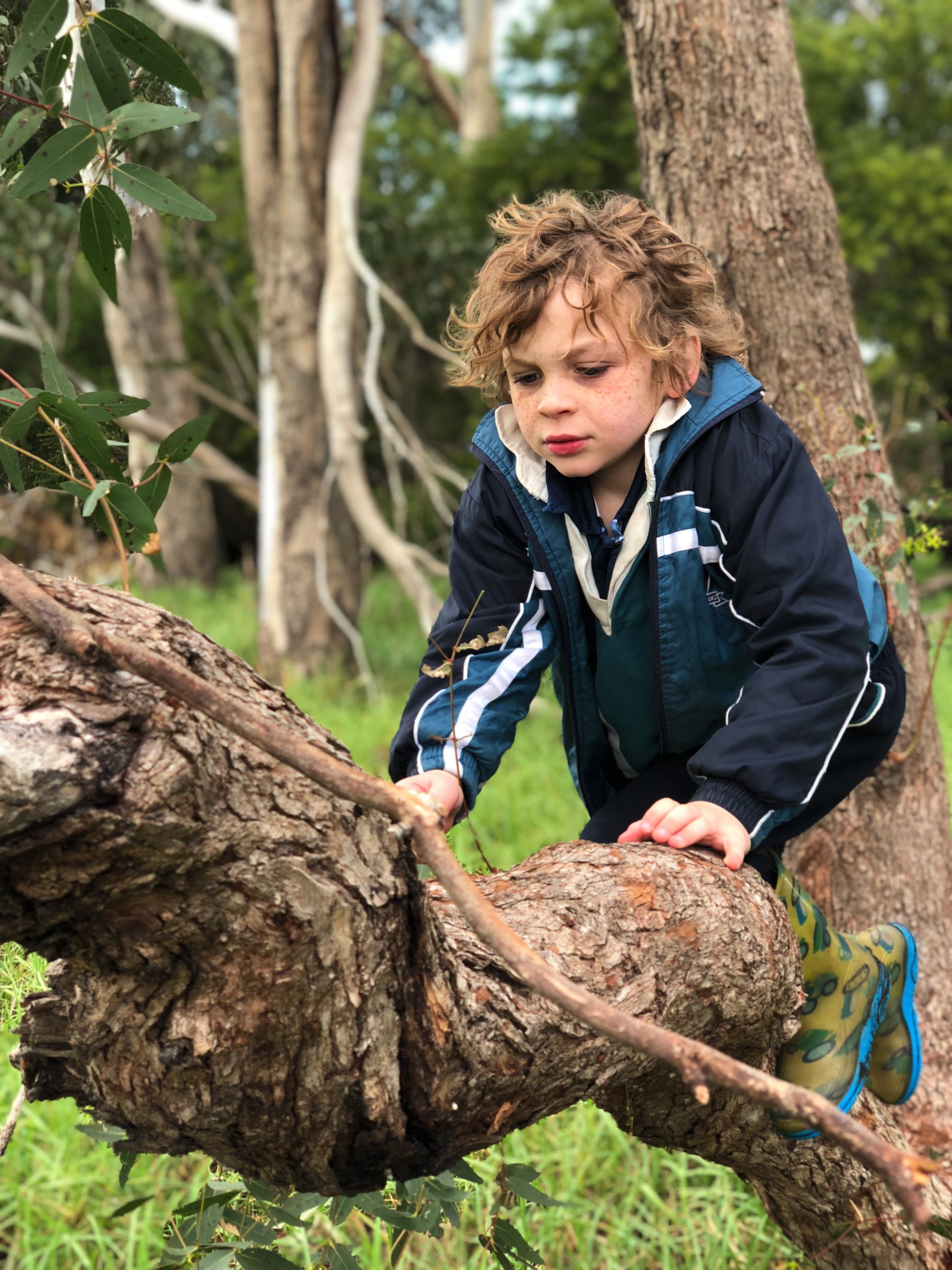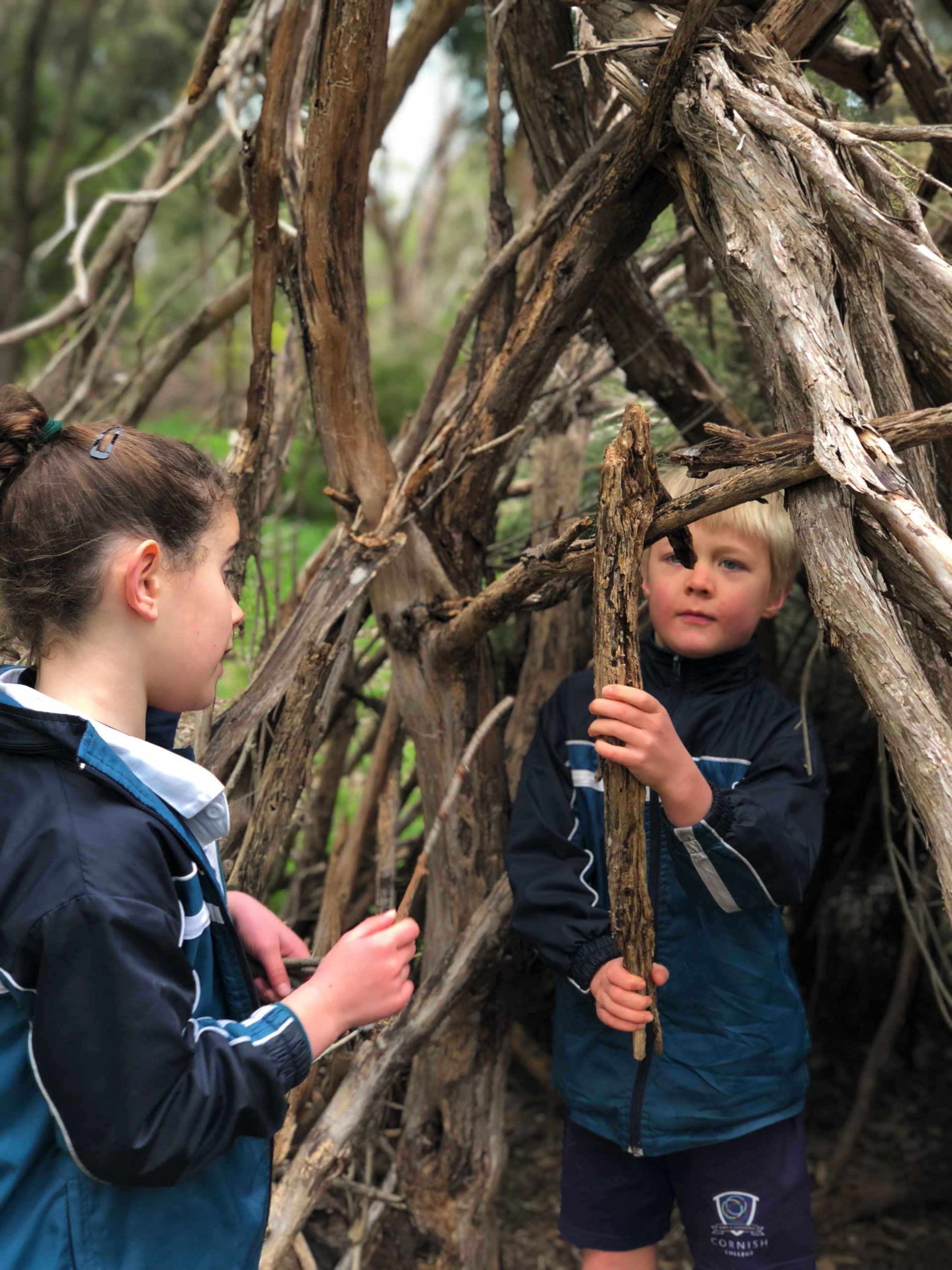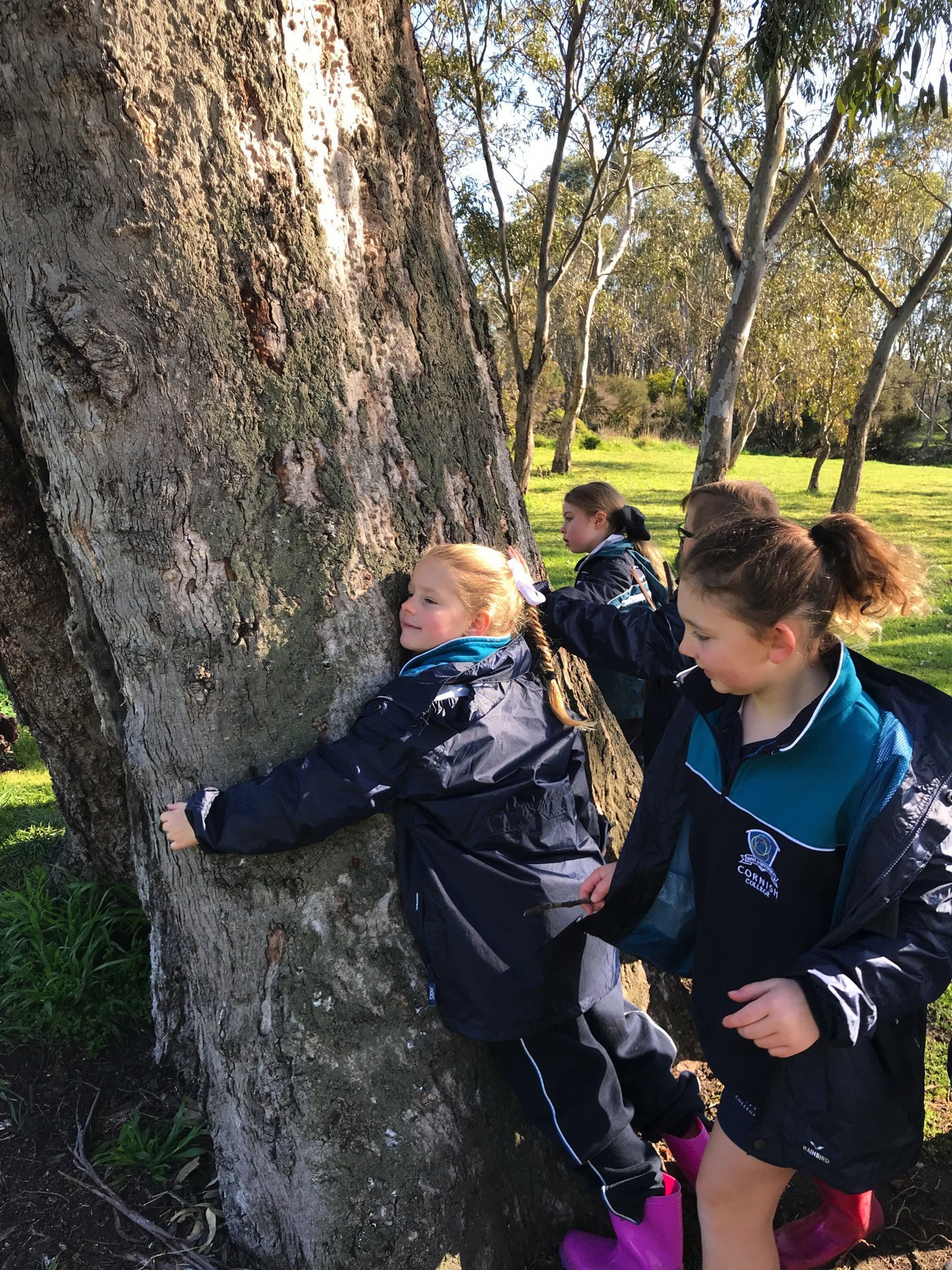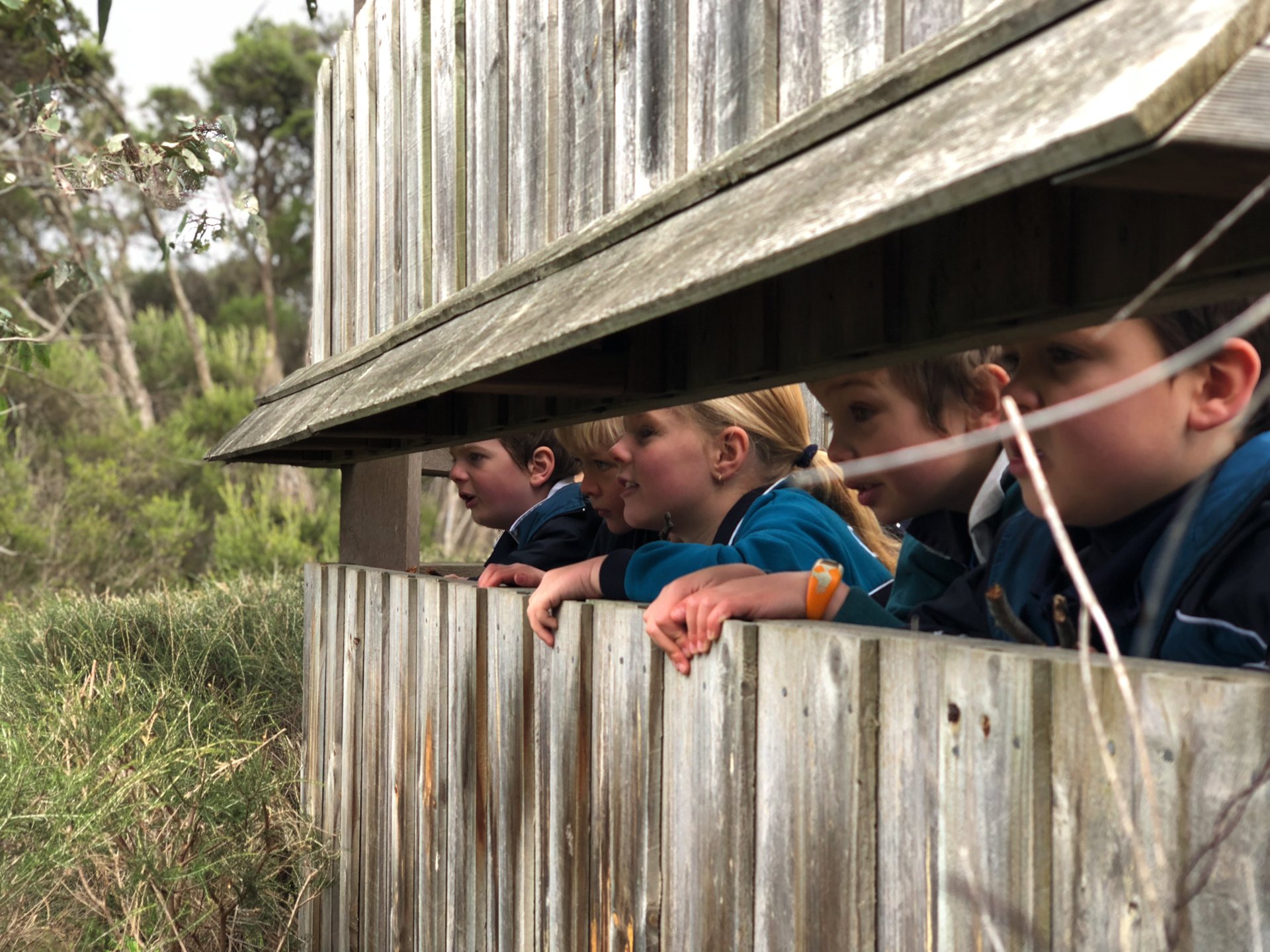‘We are committed to caring, for this place and those who come here, now and in the future.’ I look around at the 36 excited six- and seven-year-old students who have just completed their Acknowledgement of Country. They are bundled up against the cold but clear Melbourne winter morning and they are all eager to get started on another Dhumba-dha biik.*
They skip along behind and next to me. Many of them carry sticks. These sticks live next to their bag hooks outside the classroom and are precious treasures. Sticks are excellent for measuring the depth of puddles or rabbit holes, for prodding a mushroom or as a tool. They are also vital for imaginary play.
We wander past the sheoak tree. Nearly all of the children carefully select a branchlet, break it off and chew it. They like its sour taste. As they do so, they thank the tree. They know to take only what they need and that when they do take something they are grateful and give thanks.

We move onto the black wattle grove. Those carrying sticks immediately use them as a sap collection tool or as a pointer to help others locate the best sap points. The sap is then either eaten or used as a glue to attach treasures to their sticks or to just have the glorious feeling of sticky fingers. Some of the children trace the patterns in the trunks and branches of the wattle that are left from the borers and they marvel at the beauty of the mini roads etched in the wood.
As we walk, there are many conversations. Mostly the conversations are about nature and there are always questions. Children have a natural affinity with their world and there is just so much that they want to know and discover. Outdoors, the environment is the second teacher and it is a powerful and engaging one.
We check in with the mistletoe. There is great excitement. Is the fruit ripe yet? We squeeze one of the fruits to test it. No, not quite. There are groans of disappointment and then the children reassure themselves, ‘Perhaps next week?’

Our next stop is Mrs Millar’s Favourite Tree: a huge eucalypt that is filled with a variety of wildlife and reminds the children of Enid Blyton’s Magic Faraway Tree. There is a bee hive near the top and Red-rumped Parrots and Rainbow Lorikeets are noisily selecting their hollows in readiness for their eggs. A massive brush-tailed possum is curled up and dozing in yet another hollow. The children hug the tree and lay their ears to its enormous trunk to listen to its secrets. They scout around its base for elusive parrot feathers and then gather in clusters and search its high branches to see if today is a busy bee day.
We creep to the edge of the lake to check on our Black Swan couple who raise their cygnets here each year. Mum and Dad are still paddling around collecting items to build their nest somewhere in the tall cumbungi that shields them from our prying eyes. The swans are quick to sense our presence and paddle away but not before excited, whispered exclamations of ‘I see them! They’re over there!’
Finally, we make it to the tea trees. This is a wild space; a space for imagination, for testing character and for learning. There are dens to be built, games to be played, problems to be solved, discussions to be had, resilience to be developed, questions to be asked and discoveries to be made. It is child directed learning that covers much of the curriculum that as teachers we are mandated to teach.

As I wander through the space, I see the second educator, the environment, truly connecting the children with the land. This time spent in what I refer to as our outdoor classroom is not only valuable for children educationally but invaluable to their overall development. These children are our planet’s future and what better way to teach them to connect, to care and to understand the many wonders of their land and country than via an expert educator – the natural world.
* Dhumba-dha biik is Boon wurrung language for ‘Talk Country’ and is our weekly outdoor learning program for Year 1 students at Cornish College in Bangholme, Victoria. At Cornish College all of our ELC and Primary students spend an extended period of time each week outside (regardless of the weather) learning on and about their country.
Banner image courtesy of Dominique Monotti / Cornish College. Please note that this article is not sponsored by Cornish College.


Leave a Reply